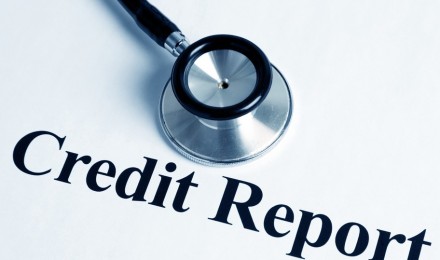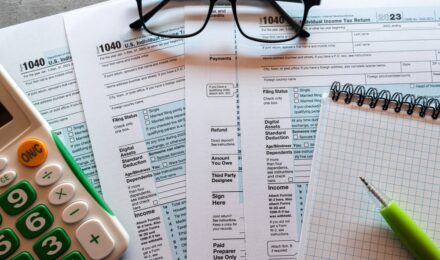Buying a house is the so-called American dream, and if you were to take a poll, most participants would likely agree that owning is the best move for their finances.
Some people, on the other hand, prefer the convenience and freedom of renting. They can move from place to place without worrying about selling a home. And if anything breaks, one call to the landlord or maintenance department is all it takes to get things up and running.
But while the people in these two groups know exactly what they want in a living situation, you may belong to another group – a group that sits on the fence. The decision to buy a house isn’t one to take lightly, and you shouldn’t buy just because all your friends are taking the leap.
It’s a major move, but with careful planning and thought, you can make the right decision.
1. Do you have cash?
Whether you decide to rent or buy, be ready to pay something out-of-pocket. When renting a house or apartment, your landlord may only require first month’s rent and a security deposit, which can be manageable. However, it’s a different story when buying a home.
To qualify for a mortgage, you have to pay an application fee, a credit report fee, an appraisal fee and a home inspection fee. And to make matters worse, you will need at least a 5% down payment, plus closing costs which can range from 3% to 5%. If you don’t have this type of cash in your bank account, renting might be the less burdensome approach.
2. Do you plan to stay put?
Because buying a house involves a lot of costs, consider how long you plan to live in the house. It doesn’t make sense to wipe out your bank account and drop a ton of cash on a house if you’re not going to stay long enough to recoup your investment. If you like to bounce around every couple of years, you’re better off renting. Since security deposits are refundable, you can apply each refund to the next place, and spend little out-of-pocket.
Buying is for people who plan to stay in one place for at least five to seven years. This allows time for a property’s value to increase, thus opening the door to a bigger profit when they’re ready to sell.
3. Which option costs less?
At the end of the day, the decision to buy or sell may come down to price. Based on the number of bedrooms, bathrooms and square footage you need, and what you’re able to spend monthly on housing, you may choose one option over the other simply because it’s cheaper.
There was a time when owning was universally cheaper than renting, but this isn’t necessarily the case today. Depending on home values in your local market, you may discover that you can get more bang for your buck with a rental.
Differences between the cost of renting and buying may be the factor driving your decision. However, just because rent is slightly cheaper today doesn’t mean it’ll be this way in one or two years. Keep in mind that rent prices typically increase every year, while the payment on a fixed-rate mortgage remains the same for the life of the loan.
Buying a house is the so-called American dream, and if you were to take a poll, most participants would likely agree that owning is the best move for their finances.
Some people, on the other hand, prefer the convenience and freedom of renting. They can move from place to place without worrying about selling a home. And if anything breaks, one call to the landlord or maintenance department is all it takes to get things up and running.
But while the people in these two groups know exactly what they want in a living situation, you may belong to another group – a group that sits on the fence. The decision to buy a house isn’t one to take lightly, and you shouldn’t buy just because all your friends are taking the leap.
It’s a major move, but with careful planning and thought, you can make the right decision.
1. Do you have cash?
Whether you decide to rent or buy, be ready to pay something out-of-pocket. When renting a house or apartment, your landlord may only require first month’s rent and a security deposit, which can be manageable. However, it’s a different story when buying a home.
To qualify for a mortgage, you have to pay an application fee, a credit report fee, an appraisal fee and a home inspection fee. And to make matters worse, you will need at least a 5% down payment, plus closing costs which can range from 3% to 5%. If you don’t have this type of cash in your bank account, renting might be the less burdensome approach.
2. Do you plan to stay put?
Because buying a house involves a lot of costs, consider how long you plan to live in the house. It doesn’t make sense to wipe out your bank account and drop a ton of cash on a house if you’re not going to stay long enough to recoup your investment. If you like to bounce around every couple of years, you’re better off renting. Since security deposits are refundable, you can apply each refund to the next place, and spend little out-of-pocket.
Buying is for people who plan to stay in one place for at least five to seven years. This allows time for a property’s value to increase, thus opening the door to a bigger profit when they’re ready to sell.
3. Which option costs less?
At the end of the day, the decision to buy or sell may come down to price. Based on the number of bedrooms, bathrooms and square footage you need, and what you’re able to spend monthly on housing, you may choose one option over the other simply because it’s cheaper.
There was a time when owning was universally cheaper than renting, but this isn’t necessarily the case today. Depending on home values in your local market, you may discover that you can get more bang for your buck with a rental.
Differences between the cost of renting and buying may be the factor driving your decision. However, just because rent is slightly cheaper today doesn’t mean it’ll be this way in one or two years. Keep in mind that rent prices typically increase every year, while the payment on a fixed-rate mortgage remains the same for the life of the loan.







